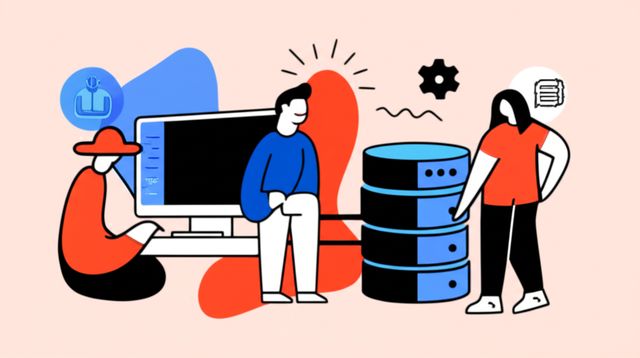Database Optimization
Database optimization is the process of improving the performance of a database system. This can be done by tuning the database's configuration, indexing the data, and using appropriate query techniques. Database optimization is an important skill for database administrators and developers, as it can help to improve the performance of applications and reduce costs.
Why learn database optimization?
There are many reasons why you might want to learn about database optimization. Some of the most common reasons include:
- To improve the performance of your applications. A well-optimized database can run much faster than a poorly optimized database. This can lead to improved user experience and increased productivity.
- To reduce costs. A well-optimized database can use less hardware resources, which can lead to lower costs.
- To comply with regulations. Some regulations require that databases be optimized to meet certain performance standards.
How to learn database optimization
There are many ways to learn about database optimization. Some of the most common methods include:
- Online courses. There are many online courses available that can teach you about database optimization. These courses can be a great way to learn about the topic at your own pace and on your own schedule.
- Books. There are also many books available that can teach you about database optimization. Books can be a good option if you want to learn more about the topic in depth.
- Conferences. There are also many conferences and workshops that can teach you about database optimization. Conferences and workshops can be a great way to learn about the latest trends in database optimization and to network with other professionals.
What skills will you learn from online courses?
Online courses can teach you a variety of skills related to database optimization, including:
- How to tune the database's configuration
- How to index the data
- How to use appropriate query techniques
- How to monitor the database's performance
- How to troubleshoot performance problems
Are online courses enough to learn database optimization?
Online courses can be a great way to learn about database optimization, but they are not enough to fully understand the topic. To fully understand database optimization, you will need to supplement your online learning with hands-on experience. This can be done by working on real-world projects or by volunteering to help with database optimization projects.
Careers in database optimization
There are many careers available to people who have skills in database optimization. Some of the most common careers include:
- Database administrator. Database administrators are responsible for managing and maintaining databases. They ensure that databases are running smoothly and efficiently.
- Database developer. Database developers design and develop databases. They also work with database administrators to ensure that databases are meeting the needs of the business.
- Performance engineer. Performance engineers work to improve the performance of applications and systems. They often have a deep understanding of database optimization techniques.
Personality traits and interests that fit well with database optimization
People who are interested in database optimization often have the following personality traits and interests:
- Analytical. Database optimization requires a strong analytical mindset. You need to be able to identify and analyze performance problems and then develop and implement solutions.
- Detail-oriented. Database optimization requires a high level of attention to detail. You need to be able to identify and fix even the smallest problems.
- Problem-solving. Database optimization is all about solving problems. You need to be able to quickly identify and solve performance problems.
- Communication. Database optimization often requires working with other people, such as database administrators, developers, and end-users. You need to be able to communicate effectively with others to explain your findings and recommendations.
How studying database optimization might be beneficial in the eyes of employers and hiring managers
Employers and hiring managers value candidates who have skills in database optimization. This is because database optimization can help to improve the performance of applications and reduce costs. In addition, database optimization is a valuable skill for businesses that are required to comply with regulations.
Conclusion
Database optimization is an important skill for database administrators, developers, and performance engineers. It can help to improve the performance of applications, reduce costs, and comply with regulations. There are many resources available to help you learn about database optimization, including online courses, books, and conferences. With the right skills and knowledge, you can become a valuable asset to any organization.


